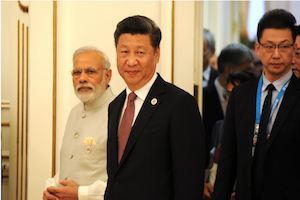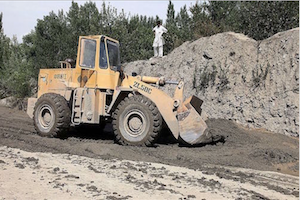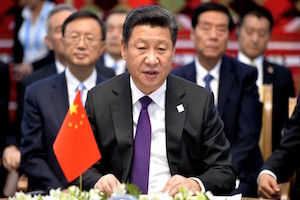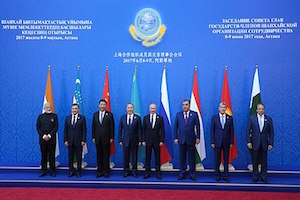The India-China Clash and the Expanded SCO
By Stephen Blank
October 16, 2017, the CACI Analyst
The recent Indo-Chinese crisis over the Doklam area has been peacefully resolved for now, yet its repercussions risk spilling over to both South and Central Asia and beyond. The Doklam clash has demonstrated to China that it can no longer push India around, and India immediately registered that lesson in self-confidence by stating that it will play a larger role in Southeast Asia, another area where they both jostle for influence. Similarly, we can expect an expanded rivalry in Central Asia, not least within the framework of the Shanghai Cooperation Organization (SCO) now that India and Pakistan are both members.

Afghanistan's Mineral Deposits Again Attract International Interest, Unrest and Smuggling
By John C. K. Daly
September 27, 2017, the CACI Analyst
On August 22, after nearly 16 years of war in Afghanistan, U.S. President Donald Trump announced his intention to increase the U.S. military presence there, extending the longest war in U.S. history and adding billions more dollars to its cost, now estimated to over US$ 1 trillion since 2001. In searching for revenue streams to support this outlay an idea that has been around for more than a decade is being revived: exploiting Afghanistan’s rich, underused mineral wealth. Despite the extent of the country’s mineral deposits being well known, many impediments remain to their development despite international interest.

China's Peacemaking Between Pakistan and Afghanistan
By Sudha Ramachandran
September 7, 2017, the CACI Analyst
With its shuttle diplomacy between Pakistan and Afghanistan to ease tensions between the two neighbors, China has expanded its peacemaking role in the Afghan conflict. Successful peacemaking is vital for ensuring stability in the region, which in turn is needed to secure the future of China’s Belt and Road Initiative. It will require Beijing to move beyond offering Kabul and Islamabad economic incentives to address the core issue underlying Afghanistan-Pakistan estrangement: alleged support to acts of terror directed against each other. Given its own strong interests in undertaking peacemaking, can China be an honest broker?

What Drives Russo-Pakistan Relations and Where Are They Going?
By Stephen Blank
August 29, 2017, the CACI Analyst
Inexplicably, Russia’s rapprochement with Pakistan over the last several years has received little or no attention in the West. It raises several vital questions about Russian policy in Central and South Asia as well as Russia’s approach to terrorism and to India and China. Since Moscow now advertises itself as a partner to the West in a new phase of the war on terrorism, its relationship to Pakistan and thus to the anti-terrorist war in Afghanistan possesses is highly relevant. Yet this relationship remains an unduly neglected issue in the analysis of Russian foreign policy.

Has the SCO Solved its Expansion Dilemmas?
By Richard Weitz
August 3, 2017, the CACI Analyst
The June Shanghai Cooperation Organization (SCO) summit in Astana marked the SCO’s first membership expansion since its creation in 2001. By finally ending this logjam, the SCO has raised expectations of continued enlargement and increased geopolitical weight. However, major obstacles to further growth persist; meanwhile, more members deepen the mutual tensions and rivalries within the institution.



